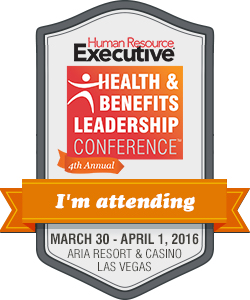Learn a new word: Goodwill Impairment
If you follow the tech and finance news at all, you will no doubt be familiar with the recent and ongoing troubles and challenges being experienced at Yahoo.
Yesterday the 'old school' internet company announced some strategic shifts, including the plans to reduce its workforce by 15% in the coming months, resulting in an employment count of about 9,000 - 42% below the level in 2010.
Part of the earnings announcements included this statement, about on-paper losses totaling about $4.4B due to an accounting exercise known as 'Goodwill Impairment'. Here is the language from Yahoo, then we'll break it down a little, because well, that's what we do here on the blog:
We concluded that the carrying value of our U.S. & Canada, Europe, Latin America and Tumblr reporting units exceeded their respective estimated fair values. The goodwill impairment resulted from a combination of factors, including decreases in our market capitalization, projected operating results and estimated future cash flows.
Seems kind of boring, almost normal accounting-speak right? Let's look at the definition of a 'Goodwill Impairment', courtesy of our pals at Investopedia:
Goodwill that has become or is considered to be of lower value than at the time or purchase. From an accounting perspective, when the carrying value of the goodwill exceeds the fair value, then it is considered to be impaired. Negative publicity about a firm can create goodwill impairment, as can the reduction of brand-name recognition.
And in the notes about the accounting requirements related to Goodwill Impairment for companies, Investopedia says this:
Generally accepted accounting principles, (GAAP), require businesses that have the type of assets that might be impaired to make periodic tests to see if those assets are, in fact, impaired.
So the accounting rules require if your business has a potentially 'impaired' asset like Yahoo's $1.1B Tumblr division, that you must from time to time evaluate (and likely have audited), the 'true' value of the asset. And in the case of Tumblr, it turns out that it really isn't worth $1.1B and the true value is something like $300M, then you have to take a charge for the difference, ($800M), in the financial statements. And that stings investors a little bit. Ok, maybe a lot.
Why the mini-accounting lesson?
Because the periodic review, valuation, and write-down of financial assets in the accounting sense is probably an exercise we can and should apply to all kinds of projects, technologies, programs, even personal relationships.
Does that 'progressive' and high-tech performance management system and process you implemented in 2012 still have value today? Or does it need some kind of 'impairment' write-down as well?
Does the new employee orientation guide that you spent big bucks developing and printing up in 2010 still have relevance today, in light of all the changes in business, technology, employee expectations, and more?
Does your 'best work friend' that you have had since 2008 remain the 'right' person for you to pal around with, or are they kind of holding you back at the office?
As Yahoo's experience with it's Tumblr acquisition remind us, things can change really, really fast. And an asset that was worth $1.1B just a couple of years ago suddenly is worth less than half that amount today. But the 'Goodwill Impairment' while painful, at least provides financial types a mechanism to recognize these changes, attempt to make them right on the financial statements, and give leaders a chance to move forward from a new starting place. And when times are bad, that at least offers a little bit of hope moving forward.
If you could take a 'Goodwill Impairment' charge in your business or life today, what would it be?

 Steve
Steve

